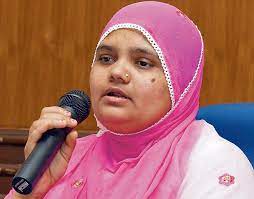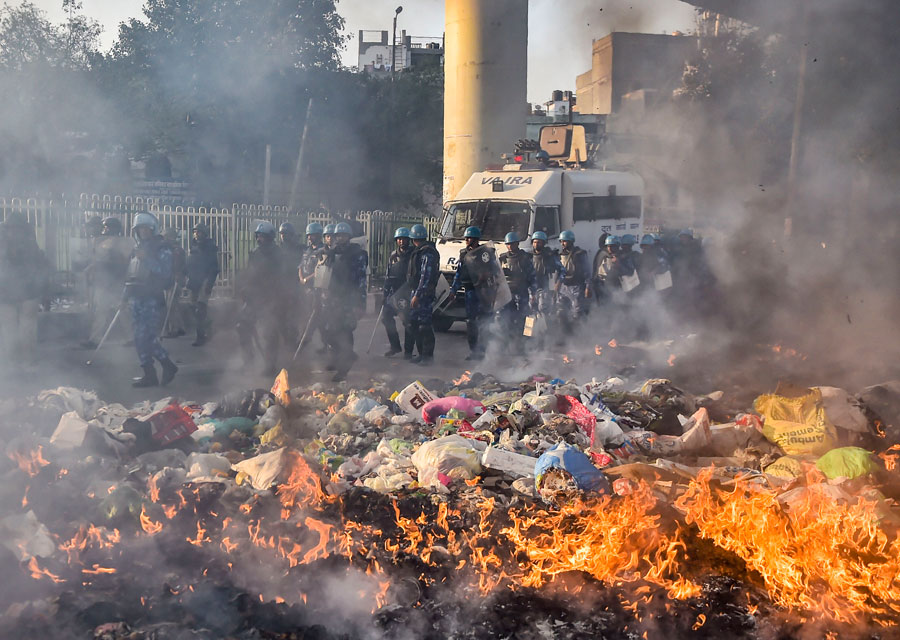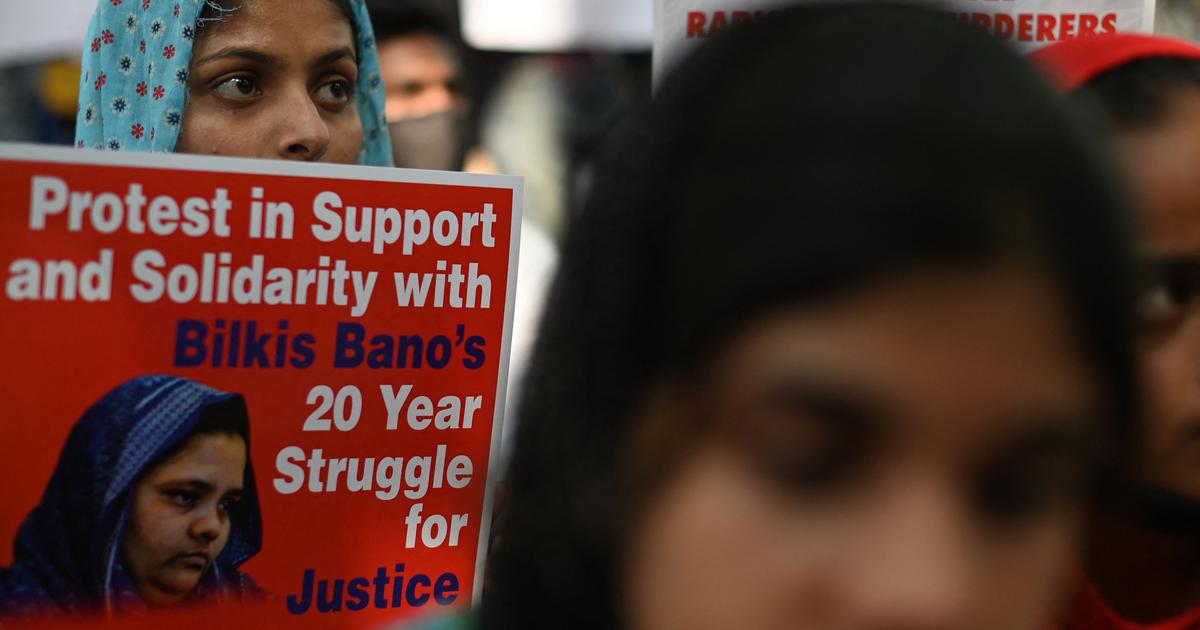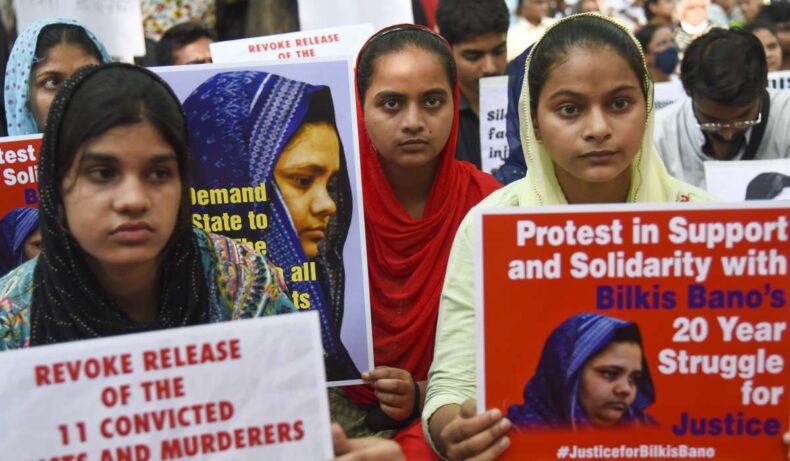The Supreme Court while hearing the petitions challenging the premature release of the 11 convicts in the Bilkis Bano rape case clarified that the reintegration of the accused in the society is a constitutional right.

The Supreme Court noted on Thursday that an accused person’s reintegration into society is a constitutional right. The court made the remarks as it considered a number of petitions objecting to the early release of 11 convicts in the Bilkis Bano rape case.
Table of Contents
A number of appeals were being heard against the Gujarat government’s decision to reduce the life sentences of 11 convicts who had been convicted of multiple murders and violent sexual assaults committed during the Gujarat communal riots of 2002. The court’s bench of Justices BV Nagarathna and Ujjal Bhuyan was hearing the cases. The convicts’ application for remission of the sentence was approved by the state administration, and on Independence Day of last year, they were released from custody.

Thus, when the entire India was celebrating Independence Day, Bilkis Bano(41) lost her case to the state.
TIMELINE OF THE ‘BILKIS BANO CASE ‘
- March 2002- A violent mob stormed into Bano’s house, killing seven family members and gang-raped 21-year-old Bano.
- 2002-2003- Local police refuse to register her case, Bano approached the NHRC
- January 2004- CBI arrested all the suspects
- August 2004- HC decided to move the case to Mumbai after Bano Raised her concerns about possible evidence tampering
- January 2008- 13 were found guilty, with 11 of them receiving life sentence
- July 2011- CBI petitioned the Bombay High Court to hang the convicts
- May 2017- Bombay HC confirms life sentence of 11
- August 15, 2022- All convicts were released from Godhra sub-jail under the Gujarat government diversion policy
SUPREME COURT’S LATEST DECISION BANO’S CASE
The top court’s bench, presided over by Justice BV Nagarathna, noted during the hearing that the remission granted by Articles 161 and 72 of the Constitution is a statutory entitlement.
In the recent hearing, Senior Advocate Guru Krishna Kumar who appeared for a convict argued that the matter should stay in the Gujarat High Court or else the convicts would lose an avenue of appeal.
“CONVICTS COMMITTED CRIMES EVEN ON PAROLE”
Senior attorney Vrinda Grover claimed that the remission orders were arbitrary and that the offenders had continued to perpetrate crimes against women while on parole.

Senior Advocate Indira Jaising countered by saying that the state was obliged to keep in mind the constitutional morality apart from its remission policy. In other words, the state of Gujarat granted remission to convicts instead of protecting the rights of women and children.
Furthermore, Jaising said that the policy is silent regarding the kind of offenses for which remission should be awarded and that a full absence policy is in existence.
The matter is said to be next heard on August 17 at 2 pm.












